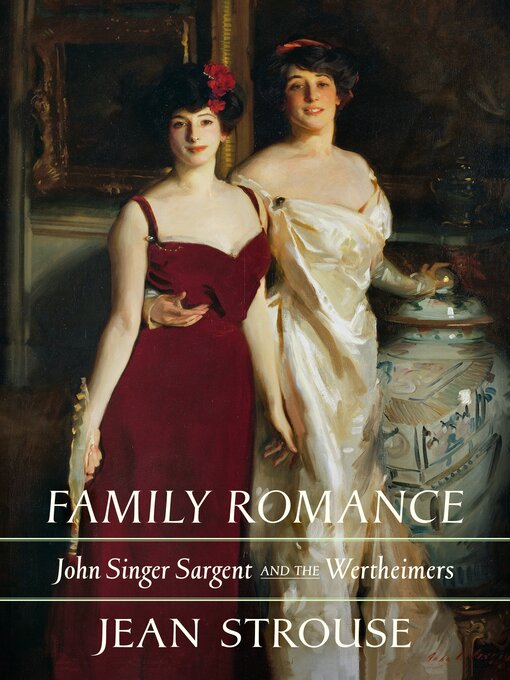Jean Strouse captures the dramas, mysteries, intrigues, and tragedies surrounding John Singer Sargent's portraits of the Wertheimer family.
Jean Strouse's Family Romance: John Singer Sargent and the Wertheimers looks at twelve portraits of one English family painted by the expatriate American artist at the height of his career—and at the intersections of all these lives with the sparkle and strife of the Edwardian age.
In commissioning this grand series of paintings, Asher Wertheimer, an eminent London art dealer of German-Jewish descent, became Sargent's greatest private patron and close friend. The Wertheimers worked with Rothschilds and royals, plutocrats and dukes—as did Sargent. Asher left most of his Sargent portraits to the National Gallery in London, a gift that elicited censure as well as praise: it was a new thing for a family of Jews to appear alongside the Anglo-Saxon aristocrats and dignitaries painted by earlier masters.
Strouse's account, set primarily in England around the turn of the twentieth century, takes in the declining fortunes of the British aristocracy and the dramatic rise of new power and wealth on both sides of the Atlantic. It travels back through hundreds of years to the Habsburg court in Vienna and forward to fascist Italy in the 1930s. Its depictions of Sargent, his sitters, their friendships and circles, and the portraits themselves light up a period that saw tumultuous social change and the birth of the modern art market.
Sargent brilliantly portrayed these transformations, in which the Wertheimers were key players. Family Romance brings their interwoven stories fully to life for the first time.
- Afrofuturism & Afrofantasy
- Cozy Fall Mysteries
- New ebook Additions
- "Look at the Cover on that One" Artsy Covers
- New Kids' eBooks
- Hot ebooks!
- New Teen's eBooks
- Comics & Graphic Novels
- Books with a Bonus!
- Popular titles
- Picture Book Love
- Read-Alongs
- Manga
- See all ebooks collections
- New Audiobook Additions
- Great Narrators
- Awesome Audio!
- Oprah's Super Soul Conversations Listen-Alikes
- New Kids' Audiobooks
- New Teen's Audiobooks
- Check these out!
- Audiobooks Under 3 Hours
- Read by the Author
- See all audiobooks collections
- Favorite Magazine Picks
- Crafts & Hobbies
- News & Politics
- Health & Fitness
- Cooking & Eating
- Just added
- Lifestyle
- Popular Magazines
- See all magazines collections


